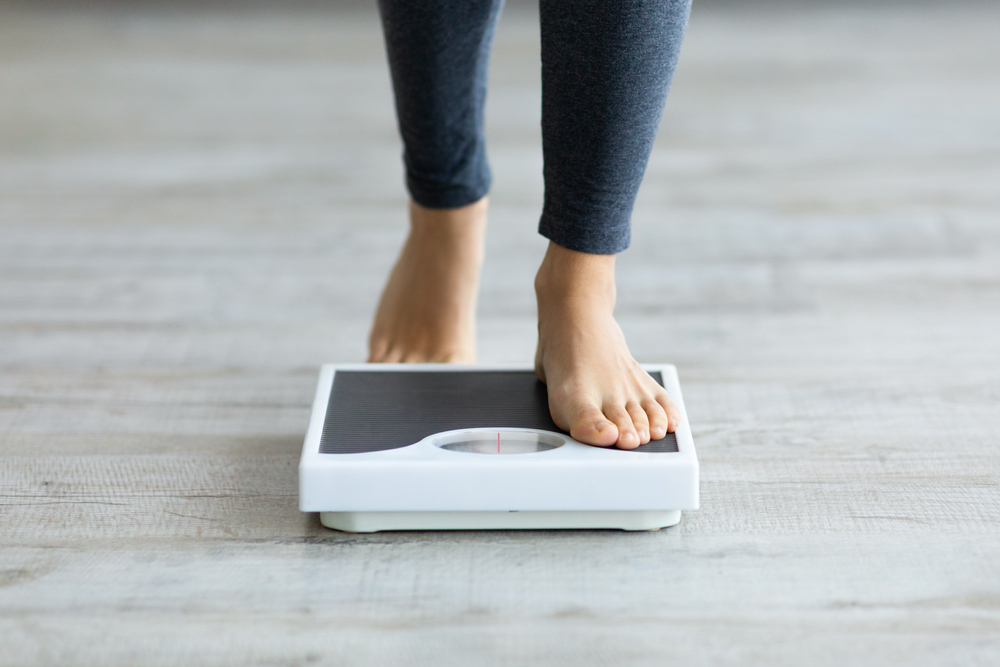There is no doubt that in recent years our society has become increasingly unhealthy, leading to a global epidemic in obesity. And while bad food choices and lack of exercise are mostly to blame, there’s one culprit that most people rarely think about; sleep.
A lack of sleep leaves you feeling lethargic, and quite frankly, the last thing most people feel like doing when they’re tired is hitting the gym. Sleep deprivation can also play havoc with your metabolism, making losing weight even trickier.
Getting the right amount of sleep is challenging at the best of times, but even more so when trying to lose those stubborn and unwanted love handles.
So let’s take a look at the important connection between sleep and weight management.
Sleep and weight loss

In recent times, people worldwide have reported that not only have they been sleeping less, but their quality of sleep has reduced dramatically. At the same time, the global obesity epidemic has become a major concern for health officials.
Due to these worrying trends, researchers have begun to look at the potential connection between sleep and weight management. Several studies have shown that lack of sleep, or ‘sleep deprivation,’ may disrupt the metabolism leading to weight gain and obesity.
Although this topic is still debated among experts, what we can be sure of is the positive link between quality sleep and a healthy body. While this line of research is still in its infancy, researchers hope to provide data that helps us sleep and lose weight. Now that would be a win-win.

Sleep and obesity

There is a clear link between a lack of sleep in children and teens and an increase in obesity; however, the reason is hotly debated among researchers. What we do know is that sleep deprivation in children can result in changes in metabolism along with unhealthy eating habits such as snacking before bed.
But the connection between sleep and obesity in adults is not well established. Research does suggest that people who get less than 6 hours of sleep are much more likely to see increases in body weight. It’s important to note obesity, on its own, can hinder sleep and lead to disorders such as insomnia and sleep apnoea.
 Source: National Library of Medicine
Source: National Library of Medicine Research is still unclear whether it’s the lack of sleep that’s causing obesity or obesity causing lack of sleep. Although more study is needed, researchers suggest getting 8 hours of sleep each night, regular daily exercise, and eating a well-balanced diet.
Can sleep boost your metabolism?
Our metabolism is an intricate system that converts the food and drinks we consume into the energy required for daily life. Now, getting the most out of our metabolism is another story and a much more complex one which involves diet, exercise and sleep.
In our daily life, activities like walking, breathing and eating all require energy and help to regulate our metabolism. Exercise, in particular, can increase your metabolism. However, sleeping slows your metabolism by as much as 16% and is at its lowest point just before waking.
Numerous studies have shown that sleep deprivation, whether from irregular working hours or untreated sleep disorders, does result in metabolic dysregulation. A lack of sleep also increases oxidative stress, blood sugar levels and insulin resistance.
Simply put, eating, sleeping and syncing your circadian rhythm is a balancing act when it comes to your metabolism. Sleep too much and your metabolism slows, causing weight gain; sleep too little, and you have more opportunity to eat, also resulting in a larger waistline.
Five fat loss sleeping tips


Let’s take a look at five scientifically proven tips to help you battle the bulge and get a good night’s sleep.
1Bedtime routine
Sticking to a bedtime routine can literally transform your sleep and, believe it or not, even help with weight management. Going to bed at the same time every night and performing the same activities can help regulate your metabolism and provide a positive outlook.
With a cheerful and optimistic attitude, you’re much more likely to make healthier food choices and prioritise time for regular daily exercise.
2Lights out
Blue light has been shown to possibly increase the chances of weight gain, so researchers suggest turning off ALL your electronic devices before going to bed. Your bedroom should be as dark as possible to get a good night’s sleep and help to promote healthy weight management.
3Late-night snacks
You don’t have to be a rocket scientist to figure out this next tip, but many people struggle with it. Snacking late at night can lead to unwanted weight gain meaning all your hard work and healthy choices during the day have gone to waste. Lay off the late-night snacks.
4Reduce stress
Numerous studies have shown that stress and anxiety can lead to weight gain and, in some cases, obesity. Stress causes insulin spikes making losing weight even more challenging, and coupled with bad food choices losing weight while stressed is nearly impossible.
5Early birds
Get to bed early. Studies show that the longer you’re awake, the more likely you are to consume more calories, especially late at night. Not to mention taking advantage of the benefits of getting a good night’s rest will boost your weight loss progress.
Sum it up

When deciding to lose body weight, you should seek the advice of qualified professionals such as nutritionists or clinical dieticians. The balance between diet, sleep, and regular exercise is complex and varies significantly from person to person.
With an abundant amount of information online, you need to ensure the data you’re reading is authored by experts, well-researched and, most importantly, referenced.
The journey to health is long and ongoing, so taking small steps and celebrating each small goal you achieve is critical to your progress. And remember, sleep plays an important role when it comes to weight loss, health and longevity.
Hungry for knowledge? Here is more
If you want to find out more about the factors that contribute to gaining weight, we recommend you read the book ‘The Obesity Code’ by Doctor Jason Fung. He is a specialist physician, nephrologist, and New York Times best-selling author. Dr. Fung has experience treating thousands of patients for decades and shares his insights on weight loss, diets, nutrition, type 2 diabetes reversal, and intermittent fasting.









